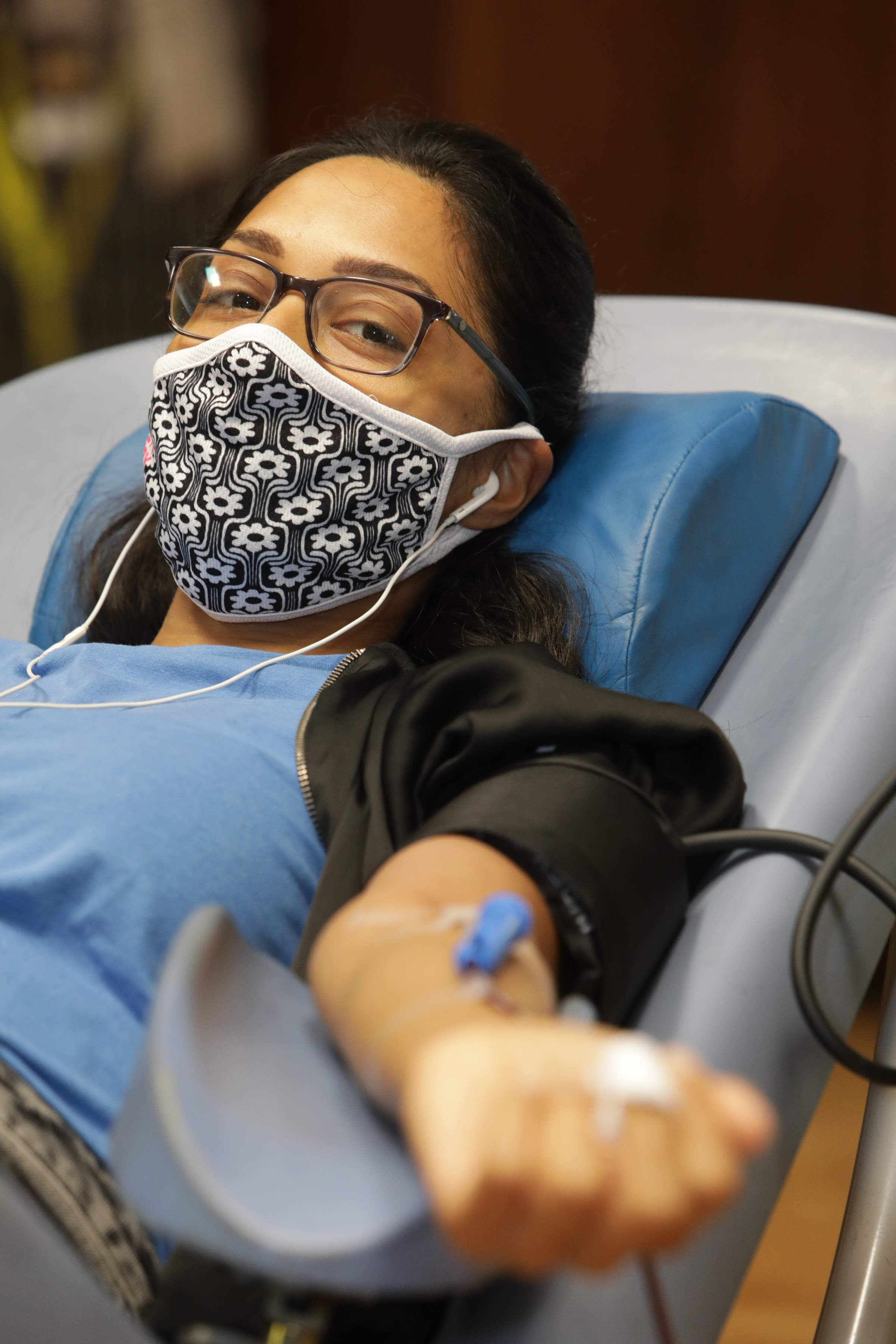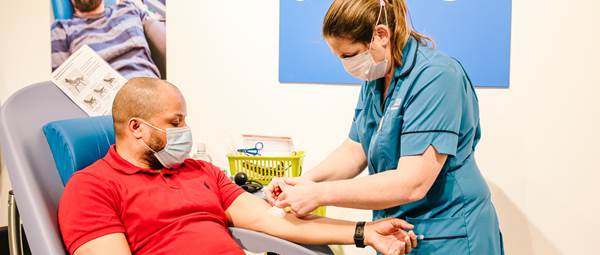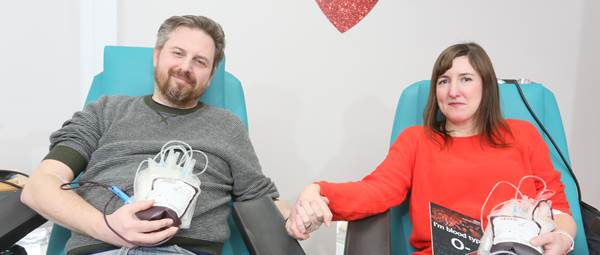Ask the Experts
Donations of blood, platelets and plasma are simple and easy ways to make an immeasurable impact to other people’s lives.
They are, however, still a marvel of modern medicine and it’s common for donors to have questions about the process.
Thankfully, the experts in our clinical support team are on hand with the answers…
Will giving blood affect my blood pressure?
 Almost half of the blood that you donate is made up of water. The fluids you lose during donation can cause a drop in blood pressure, which may cause you to feel dizzy and faint.
Almost half of the blood that you donate is made up of water. The fluids you lose during donation can cause a drop in blood pressure, which may cause you to feel dizzy and faint.
To help prevent this from happening, we’ll give you 500ml of water to drink before you donate.
(Picture: A blood pressure cuff is placed on your arm to maintain a small amount of pressure while you donate)
We also advise donors to do applied muscle tension exercises during donation. This is to maintain blood pressure and promote wellbeing during and after donation.
It’s also important to ensure that you are well hydrated in the days leading up to your donation. This will help to compensate for lost fluids and will help to bring your blood volume levels back to normal.
Be sure to avoid alcohol before and after donating, too, as it may affect hydration levels and can delay recovery.
Can I donate after receiving my Covid-19 vaccine?
You may give blood if it is more than seven days after you’ve received the vaccine, as long as it was administered as part of the UK vaccination programme and you have recovered from any reactions you had afterwards. Please donate as normal if your appointment is booked for before your vaccination.
If you are taking part in any of the COVID-19 vaccine trials, you must wait until it is more than 4 weeks from receiving this vaccine, or longer if the information provided to you by the trial team includes advice about blood donation.
If you are experiencing any symptoms of Covid-19, please do not attend your appointment and follow NHS guidelines.

UK plasma to be made available for medicine production
Plasma collected during whole blood donation will soon be able to be used used to produce lifesaving treatments.
Book your appointment online
Book now
Other stories
Remarkable stories from the world of giving blood – be they from the research lab, the hospital bed, or the donor chair
